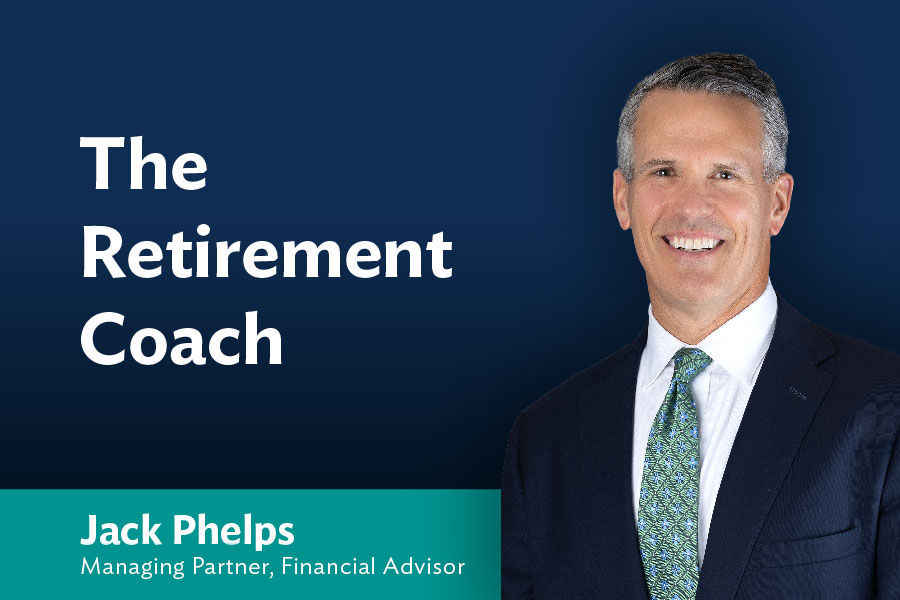Building a Marathon Investing Mindset

Building a Marathon Investing Mindset – Patriots’ Day in Boston brings out many New England traditions. One of them, which I was fortunate to witness firsthand when I lived in Lexington, Massachusetts, back in the early 1990s, is the annual reenactment of the Battle of Lexington. If you’ve never gotten out of bed at 5 a.m. to experience it, I strongly recommend putting this on your bucket list. It’s worth it!
Another tradition is running the Boston Marathon, which dates back to 1897. Although I only completed one marathon in my life back in 1994, my wife Colleen has completed several of them over the years, so I’ve had a front-row seat to the marathon training and running process.
While watching the Boston Marathon each year, I find the analogies of successfully training for and completing a marathon and the financial journey you’re experiencing during this unique stage in your life extremely compelling and valuable. Let’s take a moment to dig into some of these analogies.
A Marathon vs. a 5K
What has always been so interesting to me is how differently you have to prepare for a marathon physically and “mentally” vs. a 5k (3.1 miles) or a 10k road race (6.2 miles). Preparing for each of them bears very little resemblance, even though you’re “running” in both situations.
When you know you only have 3.1 or 6.2 miles to run, you can let loose and run at a faster-than-normal pace because you know you don’t have too far to run. Even if you’re out of your “comfort zone” the entire race, you know it will be short-lived, so you can manage it.
At the marathon distance, everything changes dramatically.
By anyone’s standards, 26.2 miles is a long way to run. Accordingly, your strategy and mindset have to be completely different, or you will never finish.
To begin with, except for the elite runners, it’s not a race. It’s a marathon.
Similar to young investors who lack historical perspective and are more likely to fall prey to the new and popular “hot” investment pitch of the day, you can always tell the amateurs at any race because they all sprint right out of the gate. They get so caught up in the emotions of the Boston Marathon that they lose sight of the goal, which is to finish.
- Pacing Strategy: You have to prepare and have a long-term pacing strategy. You do this by knowing what pace you can comfortably run for long distances. This is developed over months of short-, intermediate-, and long-distance training runs where you time yourself so you have a measuring stick.
During the race, you have to constantly check your pace to make sure you’re not running too fast or too slow.
- Battling the Elements: You have to prepare to deal with the “elements.” In some years, it’s the rain. In others, it’s a strong headwind.
As I personally experienced, training in January, February, and March can be brutal in New England with bitter cold temperatures! Marathon Monday, however, can throw you a curveball like this year, when temperatures were much warmer. The contrast is a challenging adjustment for your body.
- Dealing with Injuries: You likely have to deal with injuries. This means preventing them from occurring in the first place by training correctly and dealing with those that occur anyway. Injuries are inevitable if you’re going to run a marathon.
- Managing the Hype: Finally, if you’re running in a famous marathon, like Boston, Chicago, or New York City, it’s a crowded and chaotic circus! The hype and media coverage leading up to and throughout the race can be a major distraction for even the most disciplined runners.
The Marathon Strategy and Mindset for Investors
How do the intimate details of training for and running a marathon help you?
If you stop and think about it, there’s a perfect analogy to investing and financial planning at this stage in your life, and there is much we can all learn through the discipline and stamina necessary to complete a marathon.
Like a marathoner, you’re in this for the long run. Your retirement investment portfolio, which you’ve so carefully accumulated during your working years, must be there to support you for the rest of your life.
To build up and maintain a sufficient level requires a great deal of long-range planning, discipline, and stamina. Pacing yourself and overcoming adversity doesn’t just happen by accident.
If you get caught up in the “emotions” of stock market reporting each day (i.e., “the elements”), and you don’t have the correct mindset and long-term strategy, the odds of making unnecessary and costly financial mistakes can increase.
With the proliferation of financial news reporting through television, the internet, and social media outlets, it has become much easier to become distracted and lose long-term perspective. Just think of the level of reporting and the average person’s reaction to any economic report from the Federal Reserve or a 500-“point” drop in the Dow.
Overcoming the daily barrage requires significant restraint, discipline, and stamina on your part. That’s why it’s so important to have a well-thought-out, evidence-based system of decision-making for your money at this stage in your life.
It’s true that following a carefully crafted strategic plan is not as glamorous and exciting as reading about the latest trendy investment and questioning why you’re not invested in it…or checking out where the stock market is three times per day…or listening to and watching pundits on television, talk radio, or on the internet debate what’s the “best” strategy for “everyone” (and believing that it applies to your unique situation).
However, you can’t afford to be distracted by all of that at this stage in your life.
You, too, are running a marathon, and that requires a very specific “marathon mindset.”
This is intended for informational purposes only. You should not assume that any discussion or information contained in this document serves as the receipt of, or as a substitute for, personalized investment advice from Savant. Please consult your investment professional regarding your unique situation.

